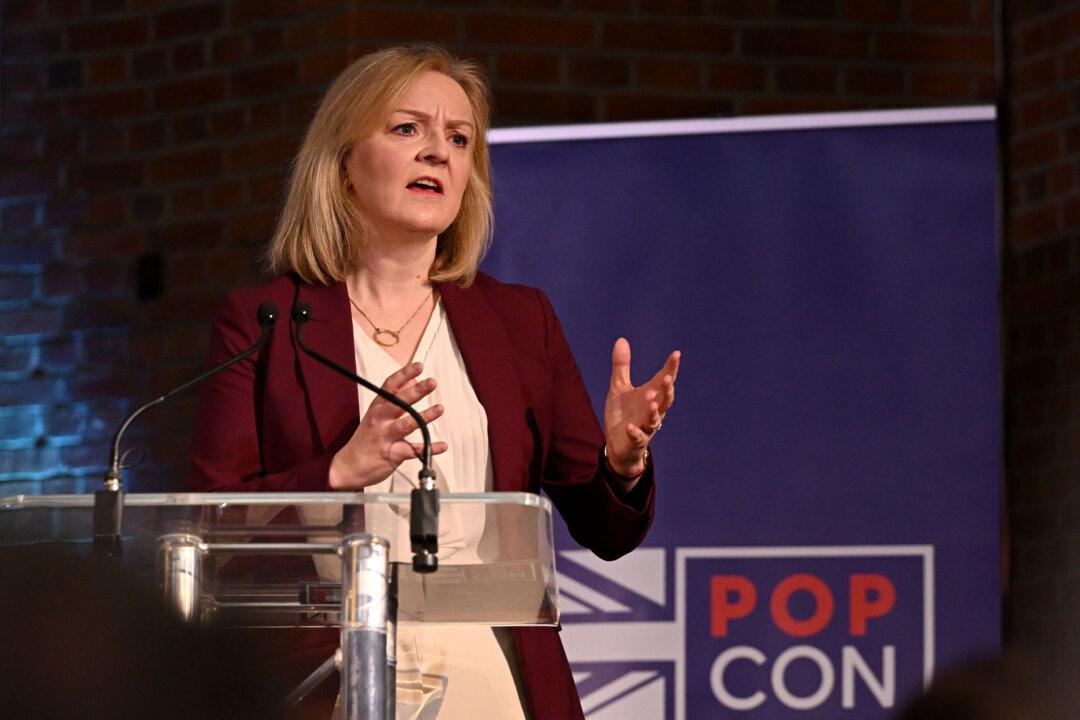The Growth Commission, an economic research group started by former Prime Minister Liz Truss, unveiled research on Monday that claims tackling net migration could leave households over £1,100 richer, ahead of the forthcoming Budget.
The commission’s report, undertaken to combat the UK’s sluggish economic growth, suggests two pivotal adjustments—a strategic reduction in net migration and the abolition of inheritance tax—in a bid to sway Chancellor Jeremy Hunt’s policy decision ahead of Budget Day on March 6.
IFS Warns of Financial Strain
These findings arrive amid mounting concerns over the UK’s tax burden, which is set to escalate significantly by the end of the decade, as highlighted by the Institute of Fiscal Studies (IFS) on Tuesday. With tax thresholds frozen and corporate tax rates on the rise, the IFS forecasts a stark increase in financial strain on both businesses and individuals.The government’s plans to tackle net migration drew scrutiny from the IFS, as it warned of a burgeoning £25 billion gap in public spending, exacerbated by a growing population and strained public services. Despite potential revenue boosts from a larger tax base, the per capita allocation for public services is predicted to stagnate.
In a statement released on Tuesday, Martin Miklos, research economist at the IFS, said: “In November’s autumn statement, the Chancellor ignored the impacts of higher inflation on public service budgets and instead used additional tax revenues to fund eye-catching tax cuts.
“At next week’s Budget, he might be tempted to try a similar trick, this time banking the higher revenues that come from a larger population while ignoring the additional pressures that a larger population will place on the NHS, local government and other services.
“He might even be tempted to cut back provisional spending plans for the next Parliament further to create additional space for tax cuts.
Inheritance Tax Trumps Income Tax
Parallel to its migration analysis, the Growth Commission also delved into the comparative impact of various tax adjustments on economic growth. The elimination of inheritance tax emerged as a more potent catalyst for enhancing per capita GDP than a comparable reduction in income tax.Eliminating inheritance tax, which is projected to generate £7.6 billion in 2024–2025, could, according to the research, yield a 1.4 percent increase in per capita GDP. That would translate to a £757 benefit per person. This contrasts starkly with the modest 0.3 percent uplift anticipated from tweaking income tax rates.
Mr. McWilliams said: “Before we ran the analysis, I was not convinced that abolishing IHT [inheritance tax] was a good idea. But the research is pretty persuasive, showing that the tax has bad effects on savings, which leads to an exodus of high taxpayers and encourages early retirement.
“With an ageing population and with so many other countries with low or zero rates of inheritance tax, keeping this tax for purely ideological reasons looks to be a luxury the UK cannot afford.”
His co-chairman, Shanker Singham, told The Telegraph: “Not all taxes lead to the same GDP per capita impacts. By being more forensic about the type of tax cuts we choose, we can boost growth, while at the same time protecting the public finances.”
With the chancellor also under fire to find ways to solve the housing crisis, which some analysts warn is, in part, the product of current levels of immigration, the Growth Commission highlighted the particularly burdensome nature of Britain’s planning system.
Mr. McWilliams said: “The ultimate solution lies in overhauling the planning system. However, given the system is currently governed by a daunting 3,240 pages of regulations, such reform cannot be achieved instantly. This is why a reduction in net migration is a pragmatic interim measure.”







